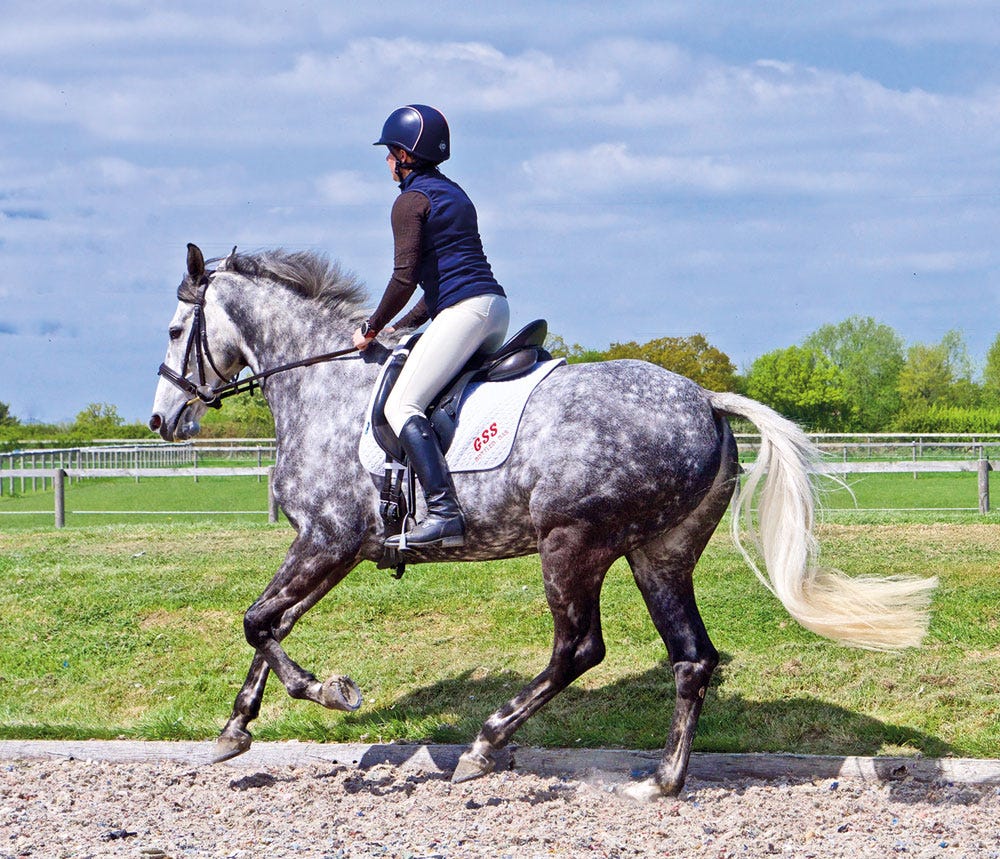We use cookies to make your experience better. To comply with the new e-Privacy directive, we need to ask for your consent to set the cookies. Learn more
Could hindgut ulcers be the cause of my horses back pain?
It's not commonly realised but ulcers go hand in hand with body pain & specifically spinal pain.
Equine hindgut ulcers are a serious problem for performance horses, and is often mistaken for back pain.
Often it is more notable on the right bend (and canter lead) for active performance horses. This is because the majority of the hind gut lies on the horse’s right side.
As the horse begins to carry itself in a crooked manner, from ulcers or any other specific pain, their skeletal system suffers.
This pattern of pain 'compensation' causes issues for the spine, sacro-illiac and neck.

In addition, muscles, ligaments, tendons and bone can be affected and the whole region begins to deteriorate. Eventually, the horse begins to no longer move his joints and limbs in a full movement range.
Due to the consistent pain patterns found in ulcer cases, the horse will sometimes disunite in canter, struggle to pick up leads and are often seen not to 'come through' the hindquarters (especially the right hind leg).
Is it possible that ulcers cause horse back pain?
Back pain is most common in performance horses, especially the dressage horse.
Back pain is often not considered to be the result of ulcers.
Symptoms of horse back pain
Main symptoms to look out for, when it comes to hindgut ulcer are
- Behavioral changes
- Discomfort from front to back
- Pressure on back
- Grooming - kick and paws
- Girthy
- Wont turn right
Cause of horse back pain
Sore back muscles and rib subluxation are both common causes of horse back pain.
Here are some more common causes of horse back pain:
- Underlying lameness
- Poorly fitted saddle
- Bridles and bits not fitted properly
- Sore feet
- Poorly conditioned horse
- Ulcers
Diagnosis & Treatment
Unlike gastric ulcers, hindgut ulcers can not be identified by gastroscope.
Some vets use ultrasound technology but most use presumptive diagnosis based on information from the owner, rider or trainer.
The current recommended treatment for equine ulcers is a course of sucralfate. Sucralfate is effective in reducing ulcer pain for 6 to 8 hours. It forms a coating over ulcers, protecting the area from further injury and helps ulcers heal more quickly. Horse owners should administer this ulcer medication at least twice a day, ideally 3 times a day for maximum benefit. It may take from 4 to 8 weeks to heal the ulcer completely. Be patient with your horse and you will both be rewarded!
Purchase sucralfate for horses?
You can purchase our brand of sucralfate, known as AbSucralfate from us. It is available easily and inexpensively from this website, with no prescription required.
For more information, visit the product page for AbSucralfate here








Validate your login